Here's why male allies are key to the fight for gender equality in the workplace
Marie Claire's live panel discussion on gender equality, in association with Salesforce and UN Women UK, was truly inspiring


Marie Claire's live panel discussion on gender equality, in association with Salesforce and UN Women UK, was truly inspiring
Last night, in partnership with Salesforce, Marie Claire's Editor in Chief Andrea Thompson hosted a live panel discussion with four career experts to explore how men and women can collaborate to achieve more diverse and inclusive work practices. It comes at a point in history where, women may have more rights than ever before to achieve their professional goals. And yet, so many still feel strongly that there are barriers to them reaching a senior level within companies because of outdated working cultures that favour men and unconsciously penalise women and minorities.
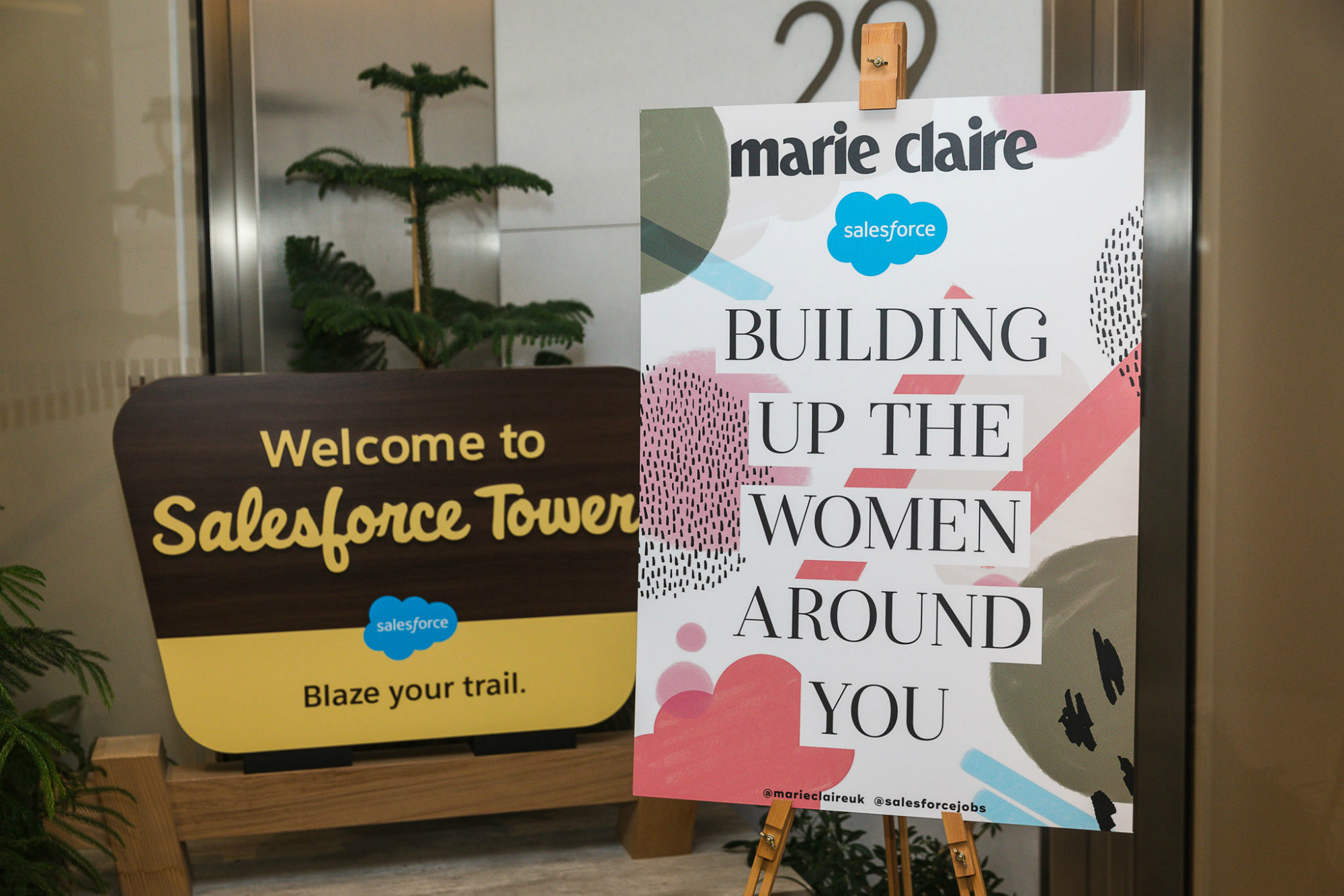
We invited a selection of key voices from across the business landscape to share their top tips on how we can channel the power of collaboration across our communities and workplaces to support women so we can all succeed and soar. After all, equality is about allowing space for everyone to be themselves at work, and to be recognised and rewarded for their unique contributions.
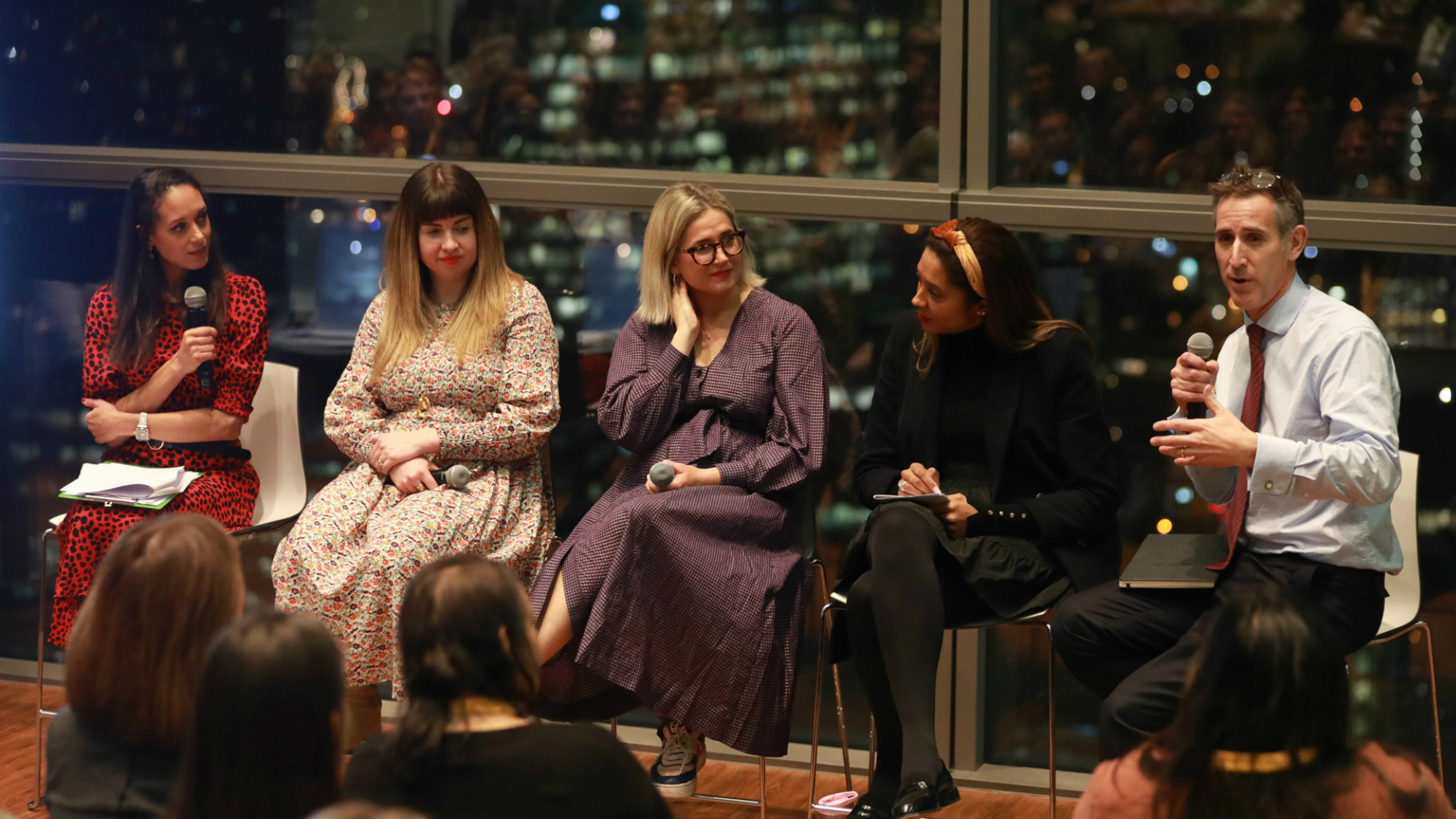
Kicking off the evening's discussion was Linda Aiello, Senior Vice President of International Employee Success at Salesforce.
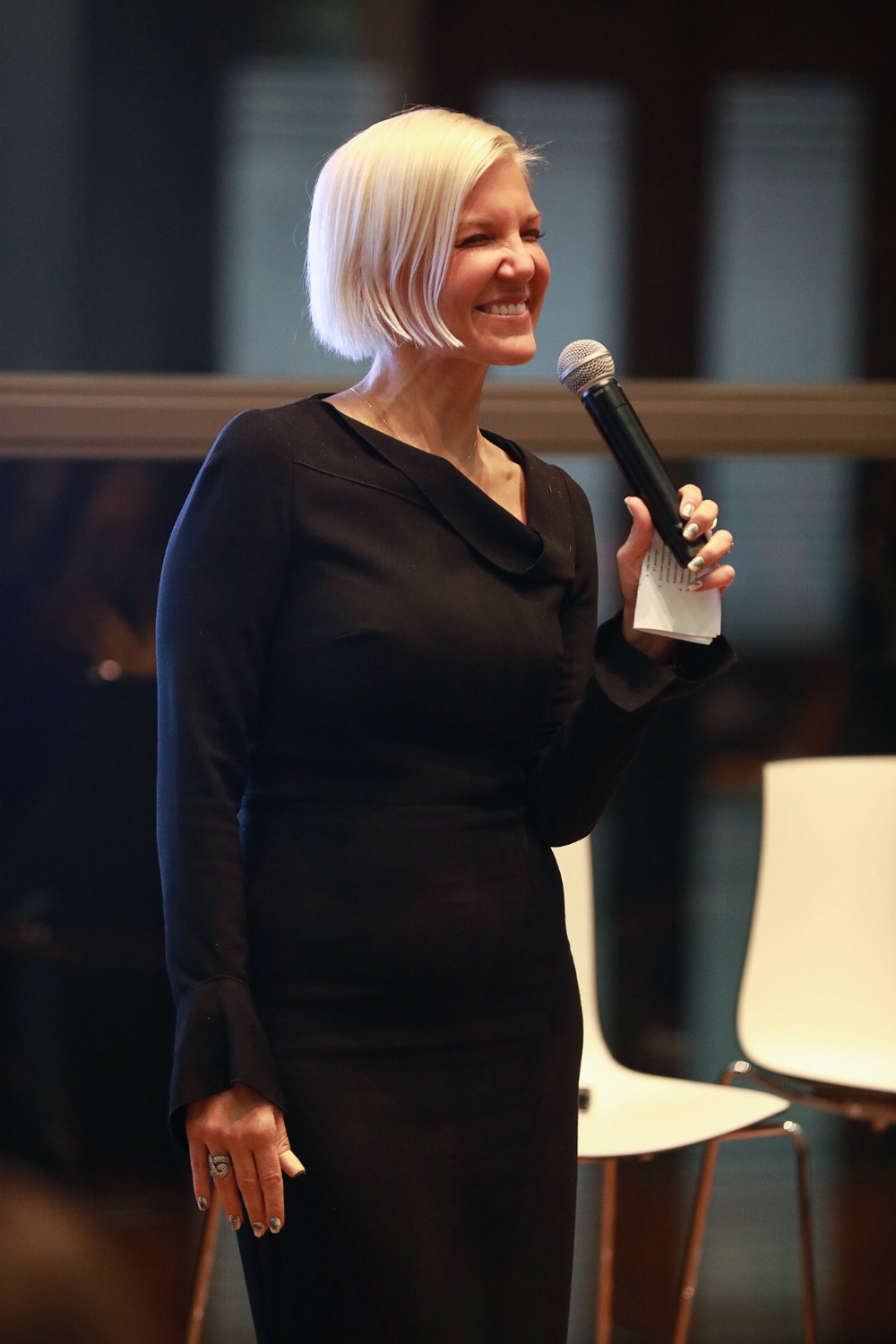
Responsible for leading employee recruitment within the global company, Linda reflected on the importance of having both men and women at the table when discussing how to tackle inequality within the workplace: 'We're here to talk about building up the women around you, but it's important that we have male allies at the top, and that they speak up for women too.'
‘I lost my father 8 years ago. He was a female ally and he always worked on encouraging his daughters as well as promoting female talent at his workplace. In fact three junior administrative staff in his business who he mentored ended up running the 3 big news networks in the US. Did he do this because he had daughters at home? I don't know, but regardless, he was ahead of his time and its only since his death that I've realised how much his values impacted me.’'
Following on from Linda was Claire Barnett, Executive Director at UN Women UK who gave the audience a global context on gender equality across governments and companies. The organisation is celebrating its 10th anniversary this year, but Claire revealed that the progress of gender equality is still too slow:
Marie Claire Newsletter
Celebrity news, beauty, fashion advice, and fascinating features, delivered straight to your inbox!
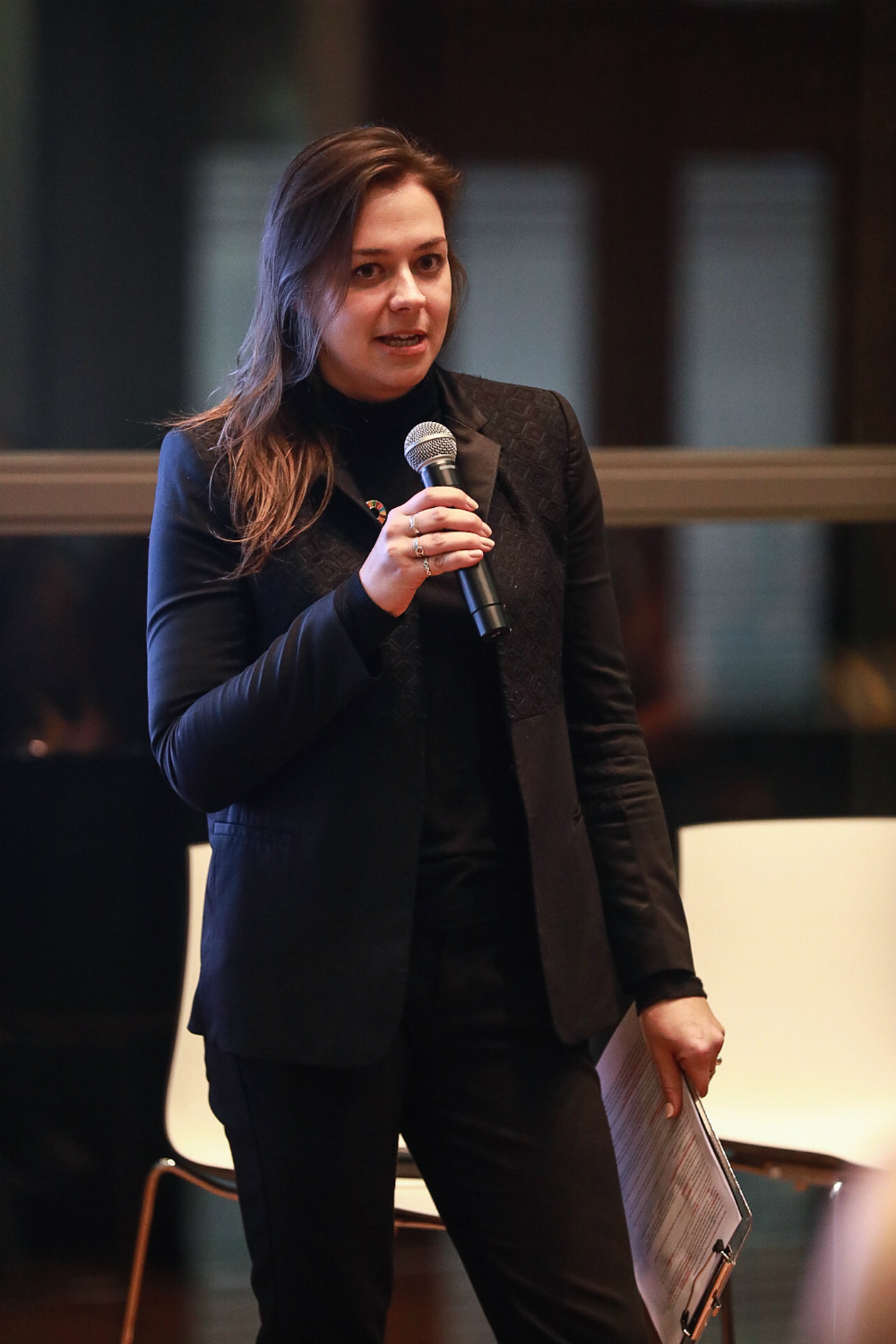
'At least 35 per cent of women worldwide experience sexual or domestic violence, and that’s the reported data, so the number is likely to be a lot higher. Lets not forget also that women are still significantly more likely than men to live below poverty line, which is $1.90 a day. So there is still a lot of work to be done.’
Claire called on all women to join together and continue the fight for equality: 'I call #MeToo a moment, rather than a movement. It’s our job to work out how we can create change for ourselves and the women around us over time. Because when we speak together our voices are so much louder than when we shout alone.’
To find out about how you can contribute to the UN Women UK's HeforShe movement, visit UNwomenUK.org
Here's what our panellists had to say...
Joanna Abeyie MBE- Journalist, social impact entrepreneur and founder of Blue Moon - a recruitment agency focussed on diversity
At just 32 years old, Joanna Abeyie is already a multi-award-winning entrepreneur and champion of diversity, who co-founded her first charity at 18. Her latest enterprise, Blue Moon, is an Executive Search Business, which helps companies transform their office culture and challenge bias. Joanna was the first and only black person to be made a Trustee and Director of The Media Society and was awarded an MBE last month for her services to diversity and inclusion.
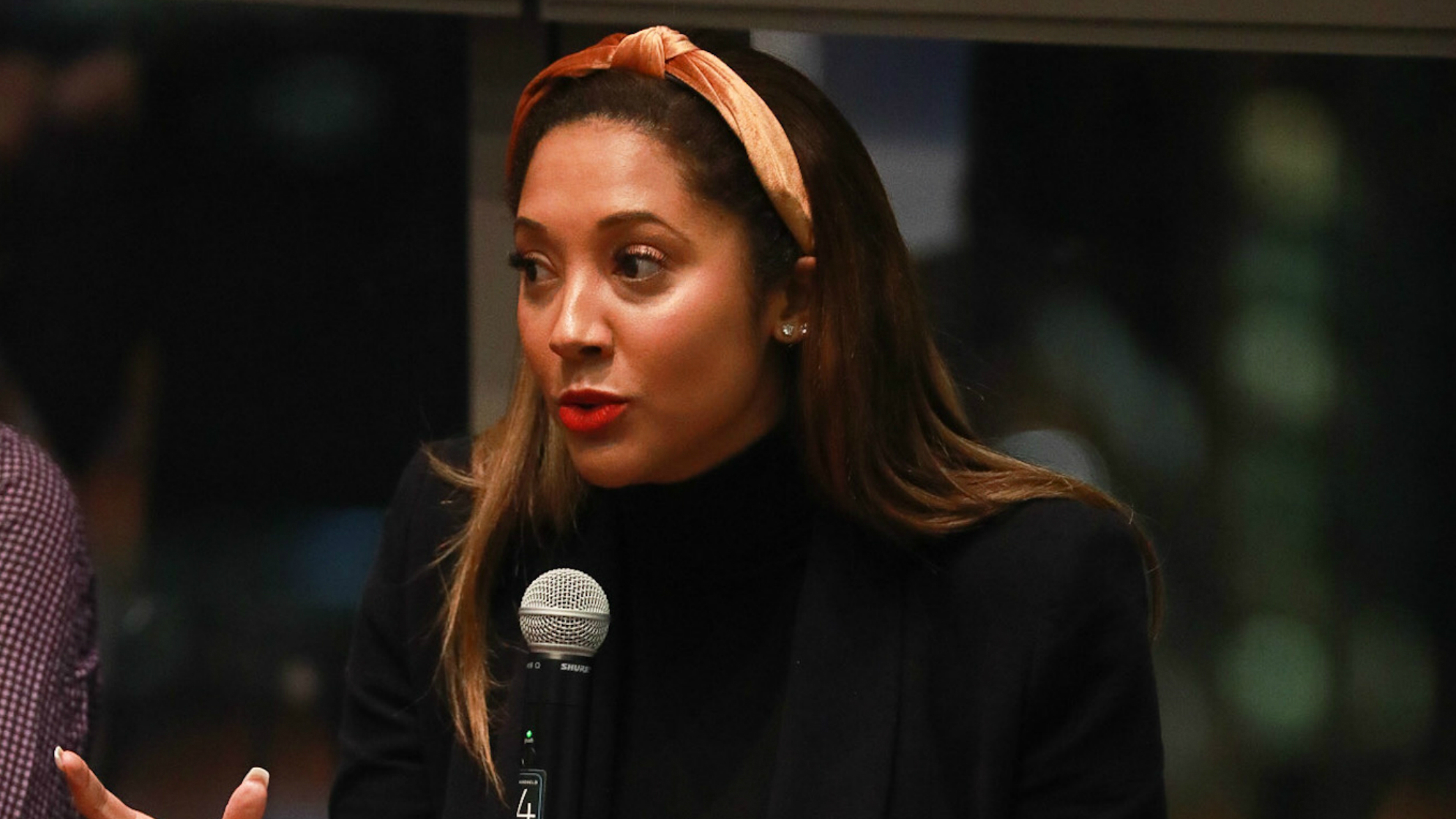
We need to understand the difference between equality and equity
‘As an ethnic minority woman, there’s another layer of bias you have to go through. If English isn’t your first language, that’s a layer of bias you have to go through. We need to make sure these women have the equity to put themselves forward for jobs and have access to the opportunities men and women have, who fit in ‘easier’ to job descriptions.’
Compassion is integral to achieving positive change
‘We’ve seen the research – we know diversity leads to innovation and better sales, but it’s getting organisations to care about this in their day-to-day. If lack of diversity doesn’t affect someone personally, they don’t care, and this needs to change.’
If you think a process is flawed, speak up
‘Many organisations ask you to apply for jobs via the website, because that’s fair, it’s not ‘who you know’ getting you in. But how can you apply if you’re blind and can’t read it? Or if English isn’t your first language? In the past I’ve applied for loads of jobs, and never got any of them. Then I’m thinking, 'am I not talented? Or is your processed flawed? ' Minority groups spend their whole lives trying to remove these barriers, and this needs to change. My job is to go into these companies and suggest alternative methods.’
We need to view this issue from every side of the table
‘There is an issue with the ethnicity pay gap which we need to address. White women are paid less than white males, but there are black males and females who are paid less than white women. This needs to change, because inequality for one person is inequality for everyone.’
James Clarry - Chief Operating Officer for RBS Private Banking
James is the Chief Operating Officer for RBS Private Banking, which includes Coutts Bank & Co. As well as a hugely successful career in banking, James is renowned for his work within the area of Diversity & Inclusion within the banking sector and has won a number of awards for the active role he plays as an advocate in supporting women in business and promoting ‘Male Allies’ within the workplace.
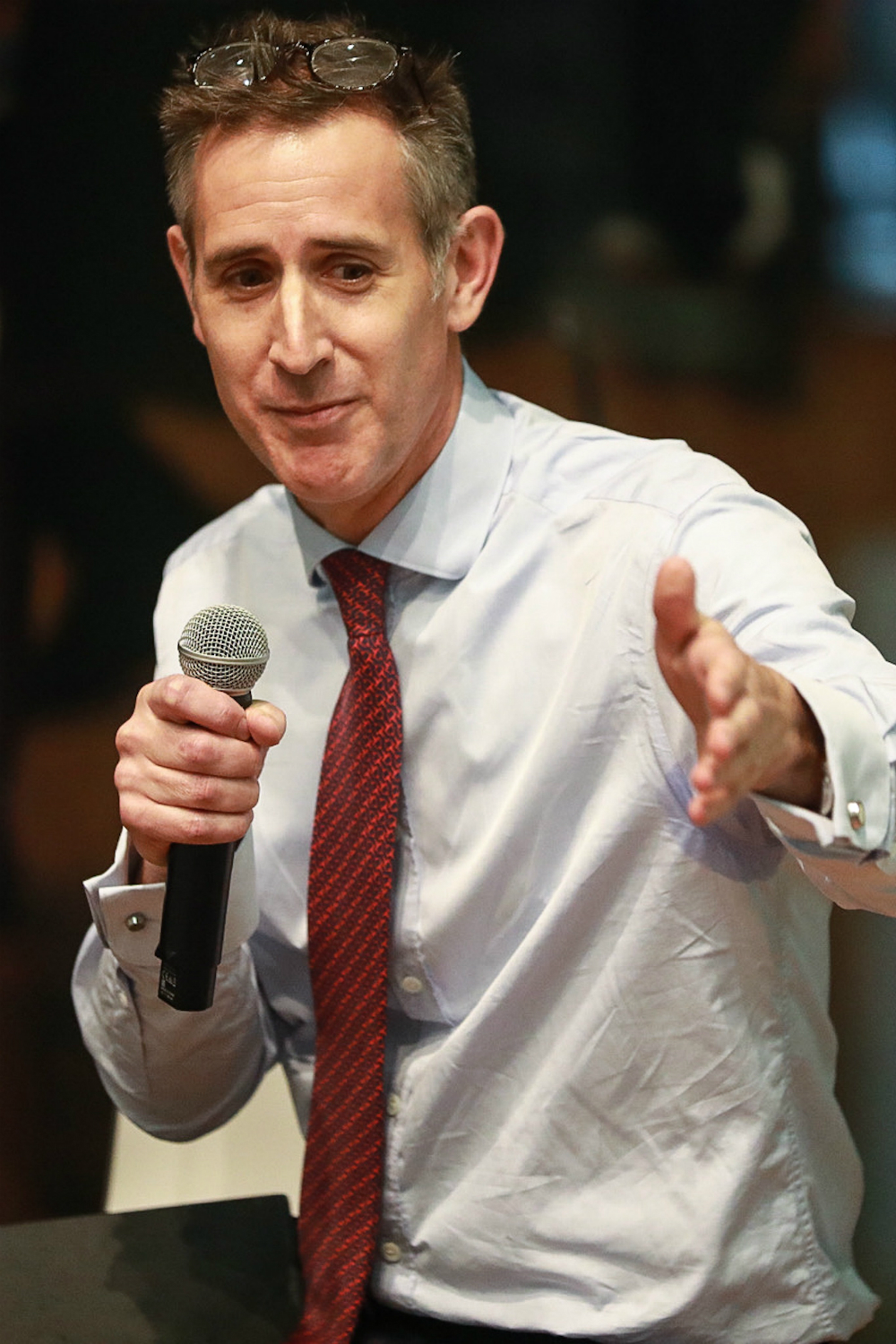
We need more men to realise that gender inequality is real
‘The challenge we have is there are lots of men who genuinely believe men and women are equal, so they see equality – as they have not suffered inequality. We need to bring these men into the conversation.We have to help men understand about the privilege they have, because it’s invisible if you have always had it.'
We have to be mindful of the gender-bias hidden within our own language
‘I’m a father of four, and my wife works – I often fall into the trap where I say to colleagues, ‘I’ve got to go, I'm babysitting tonight'. I have to correct myself and say, no - I'm sharing my parenting responsibilities. It’s all about language. Men have to get off the side-lines and recognise there is a patriarchy that needs to be called out. We have a responsibility to try and adjust it.’
Businesses need diversity to thrive
‘Banks are waking up to fact that it’s good for business to have diversity, and represent more of society so you can understand your customers better.’
Listening is key to achieving understanding between men and women
‘How do we stop unconscious bias? We can’t, it’s a natural way of how people are wired. But pointing it out, challenging it and listening helps. Just listening to the experiences of women will make a massive difference to how men understand.’
Anna Whitehouse - Author, mother and campaigner
Anna Whitehouse, AKA Mother Pukka is the Sunday Times best-selling author, mother and campaigner behind the Flex Appeal movement, which campaigns for flexible working for all. She was recently announced as one of LinkedIn’s Top Voices of 2019, has addressed parliament on the need for flexible work practices. She also uses her social platforms and weekly Sunday show on Heart radio to campaign for the cause.
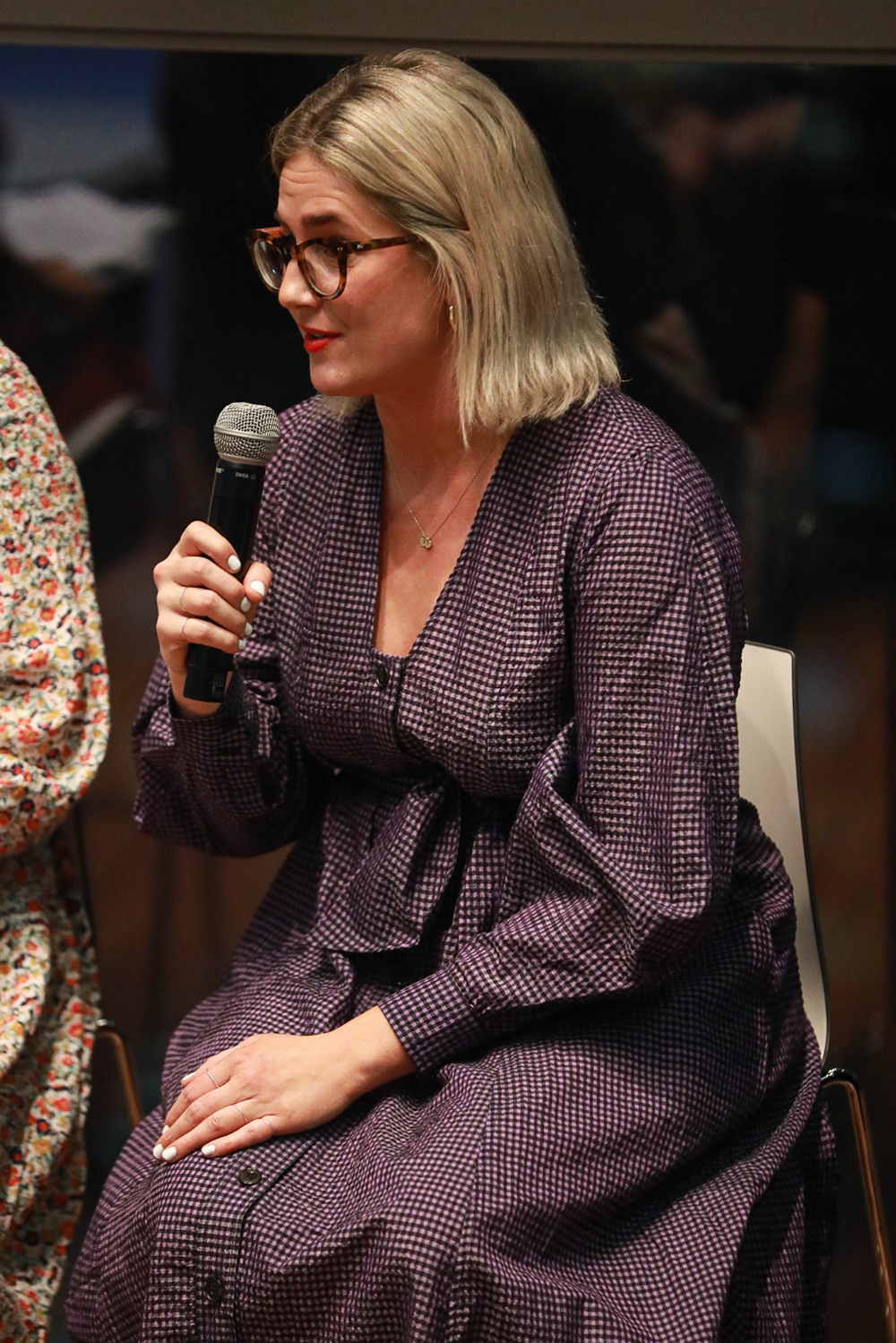
We need flexibility to thrive
‘The balance of childcare is still strapped to female shoulders. I decided to quit my corporate job after my flexible working request had been rejected, and that’s when I decided to start the ‘flex appeal’ campaign – because I believe flexibility is the key to success when it comes to mothers in the workplace’
Woman need to be kinder to one another
Often, it’s women stopping women getting promoted, it isn’t men, necessarily. This is a gross generalisation, but it’s because of the landscape. Most women have had to fight to get through to top positions and this has left bitterness, frustration and anger. They don’t want to give other women an easy ride because they didn’t have one.'
Flexible working shouldn't be seen as a bad thing, because it's not a bad thing
'There is definitely an imbalanced landscape at the top, and one way to get around this is suggesting a trial period of flexible working, say for three months. There is not one person who has done this and it hasn’t worked successfully, because you will make it work.’
Lucy Sheridan - Comparison Coach and founder of Proof Coaching
Lucy is the World's first and only Comparison Coach. Voted one of the UK's most successful coaches by the Times, much of her work is focused around dealing with confidence issues in the workplace - a serious problem considering 75% of women admit lacking confidence at work. Today, via her personal coaching sessions and live talks, she is the go to expert for women seeking positive and lasting change in their careers.
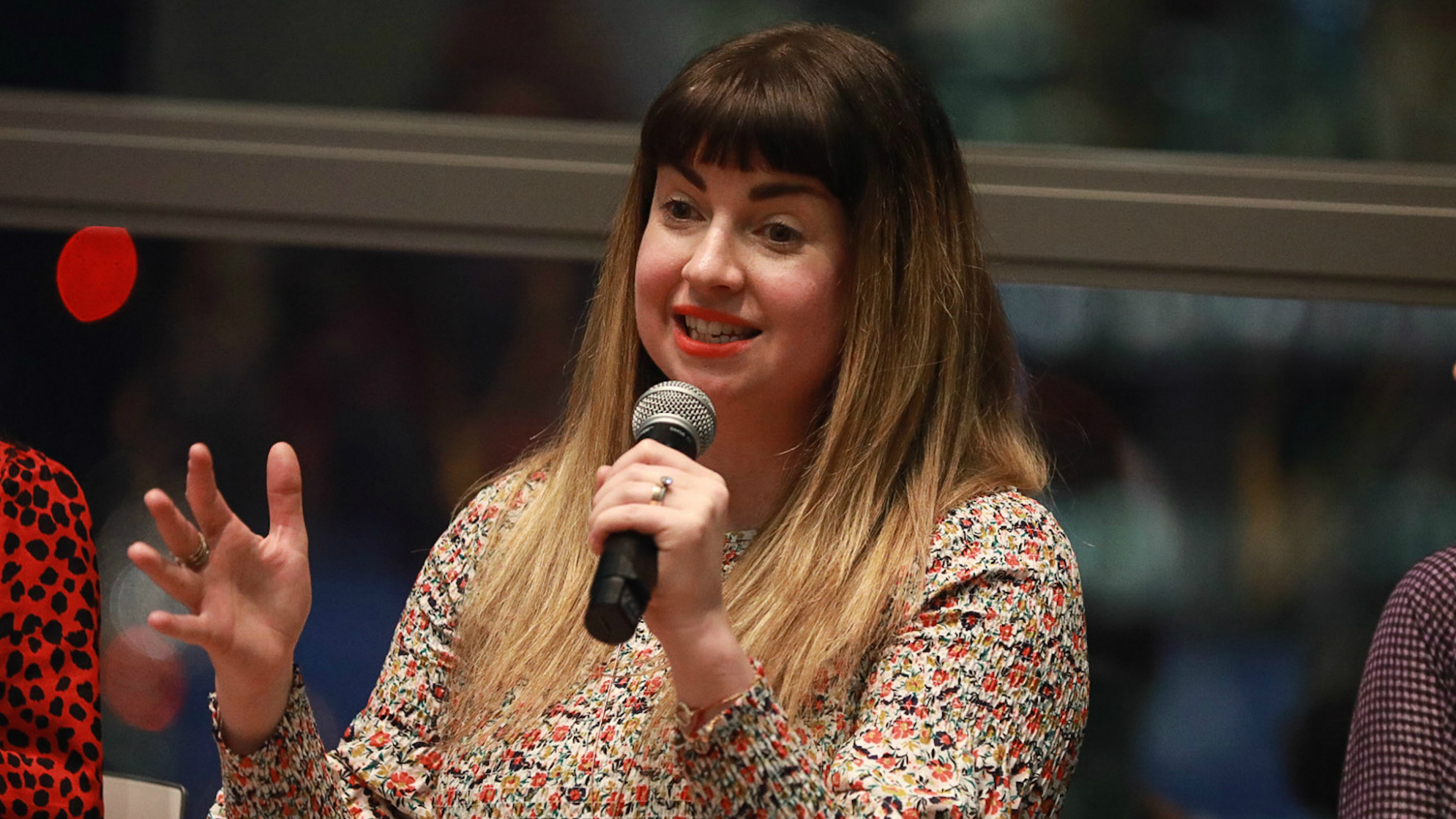
We must understand just how important diversity in the workplace is
'The more balance there is in the workplace, the more dynamic there is – it stirs the pot, it makes things zestier’
Women don't have to act more masculine to succeed
'We've inherited that tradition, but we're questioning it now. When you think of masculine energy, you think of words like ‘push', 'force', 'make it happen', 'hustle’. Feminine energy is much more about power over force – finding a way through. Traditional corporate businesses are set up to champion masculine energy, so women think, ‘that’s the mask I have to wear - its not safe to be myself.' But this isn't true.
You don't always have to say something to be relevant to the conversation
'Listening isn't just waiting to talk. Sometimes owning silence can be as powerful. And if you don’t feel you can express yourself in a work meeting, do it afterwards. Follow up with an email later that day saying 'Ive been thinking and some of the ideas we were discussing, I've now crystallised and this is what I suggest' . There's nothing wrong with needing a bit of 'processing time'.
Don't talk down your own ideas
''Playing Big' by Tara Mohr is an amazing book and resource when it comes to language. For example, you might regularly undermine yourself by saying, 'this might sound silly but'...rather than 'can I offer a view for consideration?''
Niamh McCollum is Features Assistant at Marie Claire UK, and specialises in entertainment, female empowerment, mental health, social development and careers. Tackling both news and features, she's covered everything from the rise of feminist audio porn platforms to the latest campaigns protecting human rights.
Niamh has also contributed to our Women Who Win series by interviewing ridiculously inspiring females, including forensic scientist Ruth Morgan, Labour MP Stella Creasy and ITV’s former Home Affairs Editor Jennifer Nadel.
Niamh studied Law in Trinity College Dublin. It was after enrolling in a Law & Literature class on her year abroad in Toronto that her love of writing was reignited. In no particular order, her big likes are Caleb Followill, hoops, red wine, sea swimming, shakshuka and long train journeys.
-
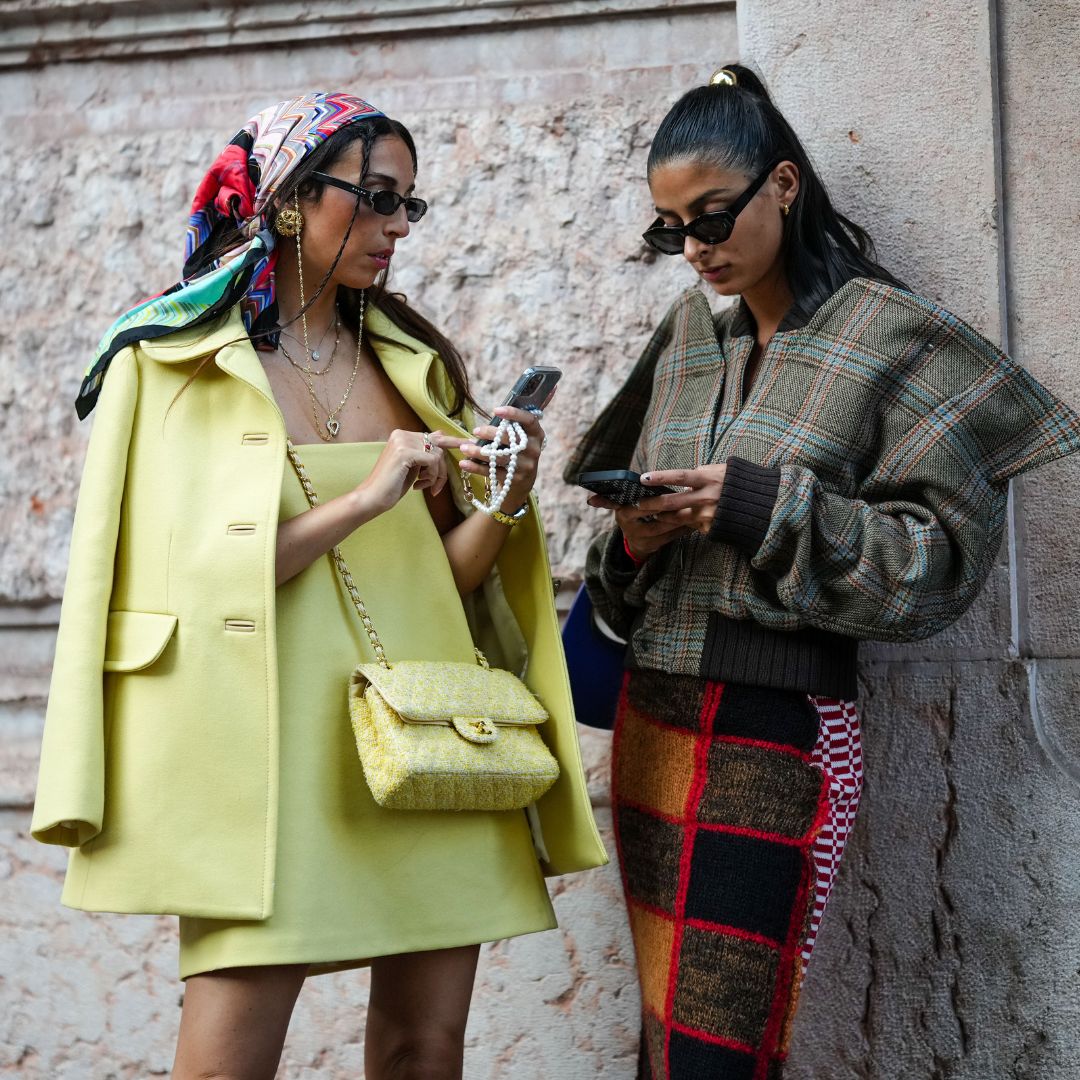 Mytheresa is having a secret sale right now and these are the 11 cult items I'm eyeing
Mytheresa is having a secret sale right now and these are the 11 cult items I'm eyeingIncluding the designer bag that was everywhere at Milan Fashion Week
By Clementina Jackson
-
 Prince Harry reportedly extended an 'olive branch' to Kate and William on latest UK trip
Prince Harry reportedly extended an 'olive branch' to Kate and William on latest UK tripBig if true
By Iris Goldsztajn
-
 How Prime Video is protecting Blake Lively amid her new movie promo
How Prime Video is protecting Blake Lively amid her new movie promoAn understandable move
By Iris Goldsztajn